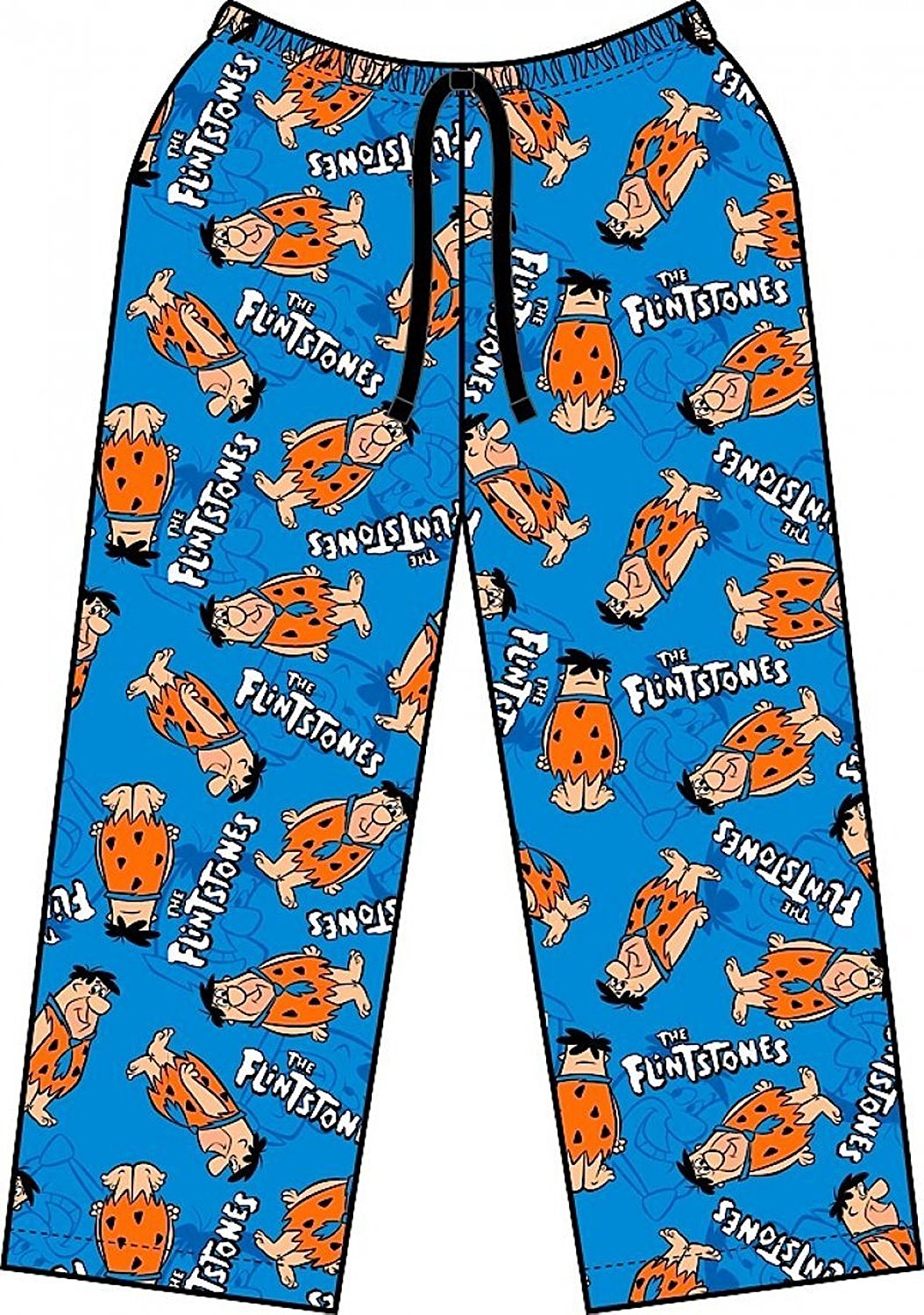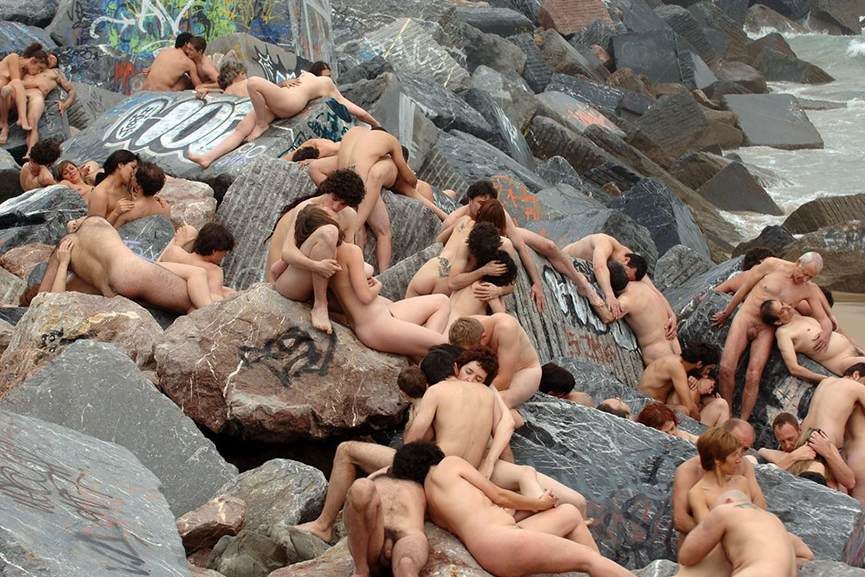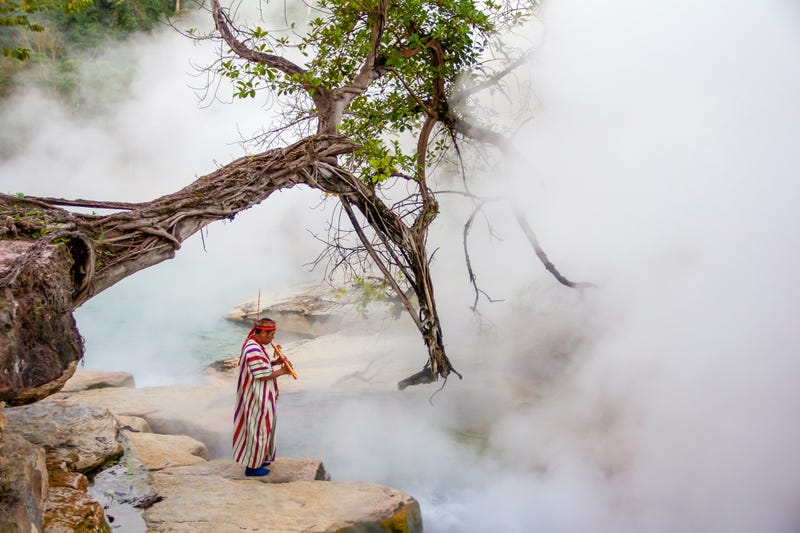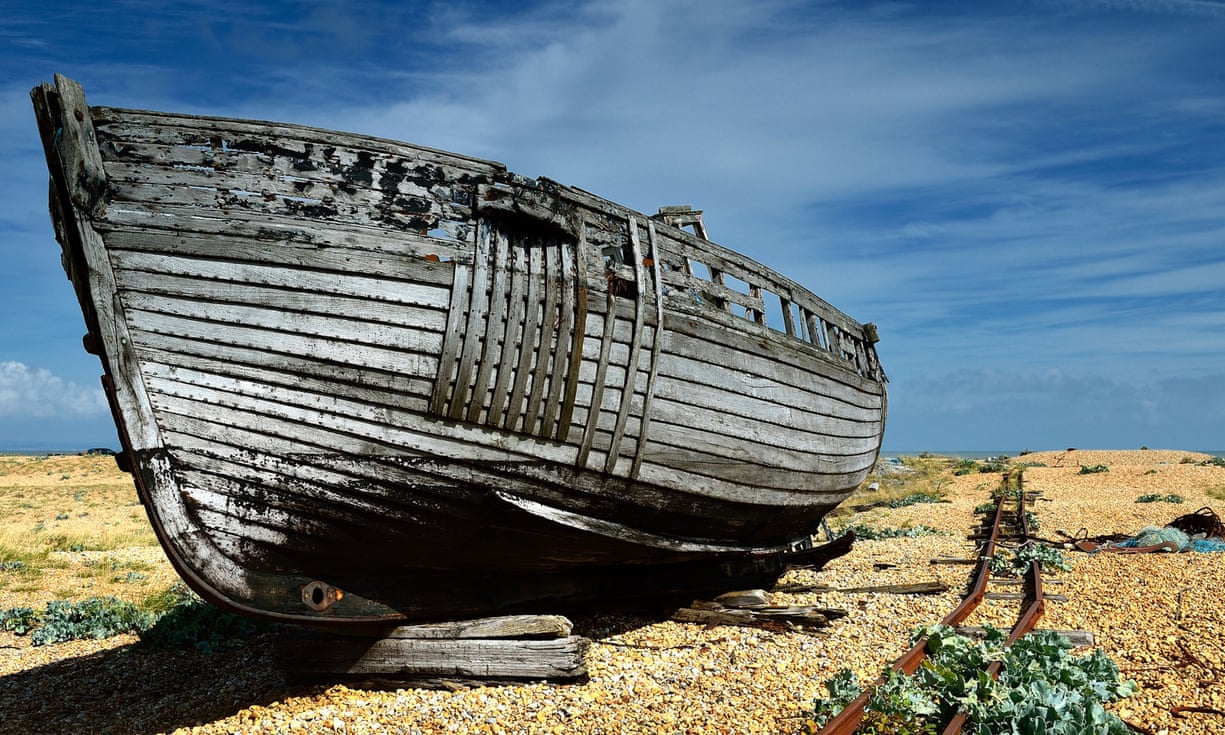Here’s another journalist getting to grips with naturism – and against expectations enjoying it.
[Alice O’Keeffe; Guardian; 26 July 2018]
And quite right too in this (for once) glorious English summer.
Here’s another journalist getting to grips with naturism – and against expectations enjoying it.
And quite right too in this (for once) glorious English summer.
A few days ago my friend Katy wrote on her “clothing therapy” blog Boostique about the delights of pyjamas – whether fancy fashion ones or the cheapo “old leggings and t-shirt” version.
Notions for what to wear in bed, or indeed slumming around the house (whether you work from home or just live the life of the idle rich) do tend to revolve around comfort. Something which Katy highlights. In this men don’t have it very different from women. With one exception, I suspect … While it is OK for Mum to take her kids on the school run still in flowery pink pyjamas, it isn’t really accepted that Dad does. At least it isn’t really accepted for a guy to be seen in saggy pyjama bottoms covered in fancy patterns of the Simpsons, or Jaguar E-types, let alone pink flowers. Men’s fashion just hasn’t caught up with these niceties yet!
Personally I cannot abide pyjamas – I find they’re uncomfortable as they are forever tangled up around the dangly bits. I’ve not worn them since I was a student with a room of my own (so over 45 years ago). Indeed I don’t even possess a pair of pyjamas and haven’t done for most of those 45 years.
 As far as I can see, us guys have four options of what to wear in bed (and they’re actually much the same as the girls):
As far as I can see, us guys have four options of what to wear in bed (and they’re actually much the same as the girls):
Pyjamas. As above but I include here all those ad hoc combinations of old jogging bottoms and t-shirts. If they work for you, or you’re a frozen mortal, fine. They don’t work for me.
Nightshirts. I had a proper, knee-length, nightshirt once. It didn’t last long. I found it as uncomfortable and liable to tie one in knots as pyjamas. When I was quite young I remember my father had a couple of old shirts, with long tails, that he wore to bed, but they eventually wore out entirely and weren’t replaced. Again good if you’re someone who is always cold, but otherwise forget it.
Boxer Shorts (or other such underwear). Again, great if you find them comfortable. I don’t see the point.
Nothing. As most regular readers will suspect this is my preference, and has been for those 45+ years. And there are, we’re told, lots of good reasons for sleeping nude:

So I can think of no good reason to wear clothes in bed, other than actually being cold. “But …”, you object …
What if the kids see me nude? Well good; so they should. It is unlikely to phase them and they have to learn about bodies sooner or later; how much better they do this at home, in a safe, controlled environment, where they can have their questions answered honestly? British Naturism (BN) exploded the myths around this some time back; see for example here.
What if the doorbell rings? You mean you don’t have a dressing gown hanging on the back of the bedroom door? Or a pair of shorts on the newel post? And anyway the courier has probably seen it all before, and if it’s the God-Squad maybe it’ll frighten them away for good.
What if there’s a fire? Do you really imagine that you, or anyone else, is going to care what you’re wearing if you’re trying to escape a fire?
What if I have to go into hospital? No problem. I’ve been in hospital several times in the last 45 years and the lack of pyjamas has never been an issue. Half the time they’ll have you in a surgical gown anyway; and when they don’t I’ve found that boxers and a t-shirt are just fine – indeed because hospitals are so hot I usually dispense with the t-shirt. Nurses have seen it all before; they learn very early in their carers that dangly bits etc. are just bits of body like any other. (Sexuality is in the context, not the appendage itself.)
Why not give bedtime nudity a go? You have nothing to lose and quite a lot to gain.
But remember: Be careful what you wear to bed, because you never know who you’ll meet in your dreams. Choose your aftershave carefully and who is really going to mind if you’re unclothed?
Following on from my post of yesterday, British Naturism (BN) are challenging those of us who are nudists/naturists to talk about it.
Their campaign is called “Just One Person” and we are being challenged to tell one person about our naturism. As their press release says
We hope to inspire those who do not talk about their Naturist lifestyle choice outside to tell just one person.
Many people don’t even know they know a Naturist and assume that we are still that fringe minority on the far edges of society. In fact, we are their next-door neighbours, their work colleagues, the people on the next table in the pub, in the aeroplane seats in the row in front, in the car hire queue behind them at the airport … everywhere.
We completely understand the individual fears and possible complications … but do want to encourage you to help Naturism in the UK to grow and to become normal. While it remains hidden, misguided and incorrect views of Naturism will continue … We want to escape from the association that nudity means sex, or even worse, perversion.
[The aims] are to:
– Improve the public understanding of Naturism by engaging people in conversation about it.
– Encourage more people to become involved in Naturism.
– Help increase people’s confidence in themselves (by having the conversation) and their bodies through experiencing non-judgemental social nudity.
So if you’re a naturist – even, like me, a solitary naturist (largely through force of circumstance) – or just someone who is not afraid of naturism and social nudity, go out and tell people. Help break down those unnecessary taboos – taboos about keeping naturism to yourself; taboos about not talking to people about naturism; taboos about the fear that naturism will deprave and corrupt. Even just a blog post or something on Facebook will help; but better to talk to people face-to-face and have an open conversation.
Today (Saturday 5 August 2017) is
In today’s society sex and nudity are used to sell products and casual nakedness is frowned upon if not actually criminalised. (Incidentally nudity, per se, is not illegal in the UK.) This is harmful in many ways, body shame being amongst the least of them. So little wonder that naturism is perceived by society as being different, and even a thin cover for rampant sexuality.
Nudism is generally considered the act of being naked, while naturism is a lifestyle which may embrace more than just nudity. Actually I would define both a being lifestyles; it depends on one’s attitude. Both can be social or practised individually, although naturism is generally more social than individual (at least in my estimation) and often encompasses other environmentally aware beliefs. In what follows I’ve been lazy and tend to use the terms “nudism” and “naturism” fairly interchangeably.
I would define myself as a nudist; I am comfortable being nude, both privately and socially, but I’m not one for the wider naturist lifestyle if only from a lack of opportunity and a dislike of the regimentation so often expected by clubs and organisations. I like the ideas of naturism, but clubs etc. don’t work for me; so my nudism tends to be private. I would like that we could live in a world where nudity was accepted anywhere and at any time and we think nothing of practising social nudity with friends and family. Until then I wear clothes to cover other people’s embarrassment.
Nudism and naturism as lifestyles are all too often frowned upon by society; this is often as a result of fear and misunderstanding of what they’re about. Contrary to what many people think, naturism and nudism are definitely not sexual lifestyles; they are holistic, bringing about many physical, mental and societal benefits.

At the end of the day, give or take the odd scar or mole, we all know what’s under my, and your, t-shirt and jeans. So really, where is the problem?
See also:
https://zenmischief.com/on-nudity-and-naturism/
https://zenmischief.com/nudity-and-naturism-quotes/
British Naturism
Is there a human “need” for being naked?
Yesterday, in between doing lots of other interesting things (which I’m not allowed to write about, at least yet) and having a day off, I came across a thoughtful piece of journalism on nudity.
In The Scientific Reasons Why You Should Just Always Be Naked Lauren Martin looks at some of the evidence in favour of accepting nudity. OK, it’s American — although that doesn’t make it any less valid elsewhere — not greatly detailed and is written with many questions in order to challenge our prejudices and taboos.
It is well worth reading the whole article, but here is the essence:
Things are only taboo because we make them that way.
… … …
Nudity is a taboo … because we primarily equate nudity or nakedness with sexuality and we have taboos about sexuality.
… … …
What would happen if we accepted our bodies the same way we accepted everything else? What would happen if we stopped covering up and started stripping down? What would happen if we all just let our bodies hang out in the open and didn’t hide them …?
… … …
There’s … no denying … that if we could get past our childish perversions and accept nudity as a basic and natural human form, there would be a lot less “deviousness” and fewer obsessions with the human body — and we could all just stop caring so much about it.
… … …
If men … were exposed to nudity on a normal, everyday basis, they wouldn’t fantasize and obsess over it the way 14-year-olds do at the sight of their first breast … By making nakedness an ordinary, matter-of-fact, common experience, unassociated with sexuality, the unhealthy prurient interest in pornography would be considerably lessened.
Imagine if men were desensitized to the female body … Imagine if men stopped putting all their time and energy into seeing women naked and just learned to live side-by-side with them?
… … …
Imagine if we all just looked at each other the way God made us without any implications or idealized notions of the perfect body? … it’s our clothing that creates our insecurities and inability to accept and love each other the way we should.
… … …
What if we’d grown up in a nude household? What if we’d been taught from a young age nudity is natural [and] beautiful?
… children exposed to nudity from a young age became … unfazed by the human body later in life and sometimes, psychologically stronger because of it … children raised around nudity [grow] up with a higher body self-concept … coming from a nudist family [plays] a more significant role in the children’s positive self body-image than their race, gender, or area of the country in which they lived.
… … …
Humans donned clothing to keep away parasites and filth, yet only created breeding grounds for different types of infections and disease … Along with infertility rates and Lyme disease, clothes also contribute to yeast infections and UTIs.
… … …
It seems arbitrary, but walking around barefoot increases brain flexibility. It doesn’t just make you feel young again, it makes your brain feel young again.

Nude girls perform Shakespeare’s The Tempest in New York’s Central Park. Which is absolutely brilliant. Good on them. It just goes to show there is sanity and common-sense around and this should be encouraged — and not just those with the courage to perform but the vast majority of the audience too.
There’s a lot in this month’s edition, which is a few days late, so let’s get straight in.
Science & Medicine
Scientists have tried to work out the five most addictive substances on Earth and what they do to your brain.
No real surprises though.
Another set of scientists have discovered a mysterious boiling river in the middle of the Amazon rainforest. Well it’s almost boiling and certainly hot enough to lightly poach the unwary.


 At which point it seems appropriate to ask why the clitoris doesn’t get the attention it deserves? And why does this matter?
At which point it seems appropriate to ask why the clitoris doesn’t get the attention it deserves? And why does this matter?So here we are again with another round of links to interesting items you might have missed the first time around. Again not too much heavy science but a lot of oddities …
Cats vs Dogs. Who wins? Well from an evolutionary perspective scientists have concluded that cats are better.


Laura Dodsworth
Bare Reality: 100 Women, Their Breasts, Their Stories
Pinter & Martin; 2015
 This is a fascinating book in which 100 women share un-photoshopped photographs of their breasts alongside honest, courageous, powerful and sometimes humorous stories about their breasts and their effect on their lives. The women come from all walks of life: from a Buddhist nun to a burlesque dancer; ages ranging from 19 to 101; everything from a 32AAA to a 36K bust; entirely natural through surgically enhanced and surgically reduced to bilateral radical mastectomy.
This is a fascinating book in which 100 women share un-photoshopped photographs of their breasts alongside honest, courageous, powerful and sometimes humorous stories about their breasts and their effect on their lives. The women come from all walks of life: from a Buddhist nun to a burlesque dancer; ages ranging from 19 to 101; everything from a 32AAA to a 36K bust; entirely natural through surgically enhanced and surgically reduced to bilateral radical mastectomy.
The cover blurb suggests the book will make you reconsider how you think and feel about your own body as well as those of the women in your life. And yes, it may for those who have not thought about these things before. Has it for me? I don’t think so, but the jury is still out. But these women’s perspectives and experiences are certainly revealing, intimate and at times moving.
The stories recounted cover the whole range:
Probably everyone would agree there are a small number of real stunners (though we probably wouldn’t agree which ones) and there are an even smaller number of horrors (like one spectacularly bad boob job); but the vast majority are just breasts — normal breasts — just like you’d see on any topless beach; nothing to get hung up about.
Which is all very much as one might expect so I can’t say I was struck by anything at all surprising. Sad; pathetic; moving; joyous. Yes all of those. But no moment of “OMG how did I not know/suspect that?!”. And in a way I found that disappointing. I had expected there would be something profound about women and their breasts that had passed me by, but if so it isn’t revealed here.
That having been said I did find the book both interesting and compulsive reading. Whether you are male or female, if you want an insight into how women view their breasts this is a must read. I would commend the book to everyone, but especially to teenagers — of both genders, but boys especially — as an essential part of learning, understanding, cherishing and being completely comfortable with your, and everyone else’s, body. To which end we could now do with the equivalent books of male and female genitalia.
Oh, and do not expect the book to be titillating. It isn’t.
Overall Rating: ★★★★☆